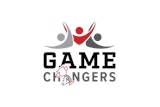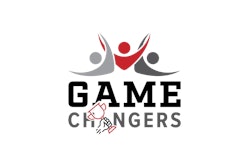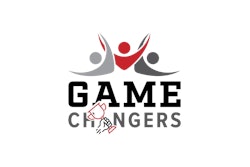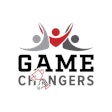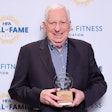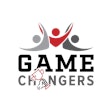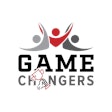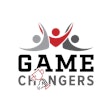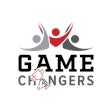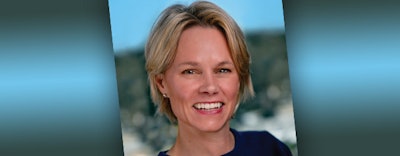
One could look at Molly Fletcher's resume and assume she was destined to speak in front of large groups of business leaders. Her personal leadership skills were evident in college, where she captained the Michigan State University women's tennis team, but building a career in which she boldly crashed the boys' club of sports agents — and was even dubbed the "female Jerry Maguire" by CNN — took extraordinary pluck. When Fletcher delivers the keynote address — titled "Unleash Your Potential" — Oct. 29 at AB Show 2021 in San Antonio, she'll speak from experience. AB senior editor Paul Steinbach asked the five-time author and former president of client representation for Atlanta-based sports and entertainment agency CSE, where she negotiated more than $500 million in contracts, to briefly recap her inspiring professional journey.
What steered you to Atlanta and a sports marketing career?
I moved to Atlanta without a job, two-thousand bucks and nowhere to live. I was able to sleep on the couch of a friend's apartment and navigate my way through some people from Michigan, where I grew up, who knew folks in the Atlanta market — tennis pros. I wanted to do something in sports marketing, but I really didn't know what that meant. I didn't know if that was with an equipment company, with a governing body, with an agency, with a team. I didn't know. But I knew I wanted to be in and around sports and performance mindset folks. And so my first job was working with the Super Bowl host committee. My resume says that I was a liaison between the commissioner, transportation and volunteers, but I was a receptionist.
How did you then become a sports agent?
I met a ton of incredibly influential people in Atlanta, because they would come in to meet with the head of the host committee. They'd be waiting in the waiting room, and I got to meet the CMO of Coke and Home Depot and UPS — all these big brands — and so I really made it a philosophy: "How do I get these guys to like and respect me enough to either help me or hire me?" I began to have a lot of informational interviews, and I found that people love to talk about themselves and they love to give people advice. I listened a lot, and what I began to realize are the things that I thought that I was good at are things that I wasn't so good at. I didn't love running events. The experience at the host committee was great, but I knew that I didn't want to be in sports events, per se. But I think for all of us at some level, noes create opportunities for yeses. I got an interview with an agency to just help do endorsement deals for athletes. I thought, "I'll be right beside these peak performers. That's cool. That's what I love."
When did you realize you could be good at it?
At the time the Olympics was in Atlanta, Lenny Wilkins was the head coach of the Dream Team, and my job was driving Lenny around to all of his appearances — at Coke and Bell South and Home Depot — and spend a lot of time with him. He was a great man — one of the winningest coaches in NBA history — and so that was when I started to see that this was a business, a business in which you would be around people, a business that was very relational in nature, which I liked. It was a business that, in my opinion, when done right is one done from a service heart. It's someone who truly wants to help make people's lives better, and I do love that. And so that was when I began to sort of go, "You know, I think this is a space that really unlocks some of my own gifts. And, most importantly, I can make an impact." Like lots of our careers, they're sort of organic. They sort of evolve, and mine certainly wasn't some well-scripted plan. It evolved, too.
What are the specific gifts that you brought to the agent-client table?
I think it's funny. People always say to me, "Gosh, being a woman must have been a nightmare. That must have been really hard. There are no women." And there were no women. I mean, there were no women at ballparks behind home plate during batting practice. Guys would get yelled at by their managers for "hitting on that chick." They'd go, "Dude, that's my agent. Relax." Or PGA Tour players would get, "Why are you walking a practice round with your wife? And, by the way, I thought your wife looked different than she does." What I began to realize is, these guys are around guys, because generally we represented a lot of male athletes. If they're a baseball player, they're on busses and airplanes with all these guys all the time. Golfers? Guys all the time. And then they would have their mother and their wife or their girlfriend, but they're not totally objective, because they love them — which is great. So, I think my gifts were that I had played at a high enough level that I understood the pressure. Now, I certainly didn't understand it fully, because it's very different being on the professional stage. But I knew what it was like to actually have to be inside a pressure event. I love building relationships, and I still do. I mean, I loved taking these relationships, where they don't trust you at all, they wonder what you really want, if you really care and if you're really real, and then finding yourself six months later at a dinner toasting to a great bottle of wine and excited about the relationship that you built with the athlete and their family and the journey you're going to go on together. To me, my gifts would be authenticity, the ability to build relationships in an authentic way, and then I love to help make people's lives better. And that's what, in part, transitioned me to the world I'm in now with speaking, writing and training — taking all of the things I've learned from some of the best athletes and coaches in the world and then seeing how we can lift this performance mindset up and apply it to ourselves as business people.
Are there characteristics that you gravitated toward or actively sought out in a prospective sports client?
Absolutely. Number one, it was a bit of a marriage, right? I wanted to be with somebody who respected me and the way in which we were going to navigate this window of time that's really unique to a professional athlete. It's such a unique window of time that these athletes have to do what they do. They make an enormous amount of money in a really short period of time, and so the mutual respect was really important to me — that they respected the work that I was going to do for them and, of course, that I obviously respected what they do and how they do it. And then I think I always tried to grow our client base through referrals. If I was going to see a ballplayer, I wanted to know from my other guys, "Do you like this guy?" If Chicago's playing Atlanta, and I come to Chicago, can we all go to dinner together? Is he our kind of guy? Is he in this family with us, or not? And I would always ask my existing clients, because they know other guys' reputations, "Is this the kind of guy or gal we want?" And I really would try to listen. Sometimes I would hear things that I didn't think aligned with the kind of athlete we wanted to work with, and I would take a pass. The other consideration was that we were aligned on expectations. If I was sitting in a room with a projected first-round pick who thought he was going to be in a national commercial the next day or that he was going to be in the big leagues in five minutes, I mean, I'm going to take a pass on that guy, because I'm not going to be able to deliver against expectations that aren't real. Or a PGA Tour player who's 120 on the money list and thinks he should be covered with logos because he's on tour. Dude, you're 120 on the money list. You're good at what you do, for sure, but you're not playing in the majors. I wanted to make sure that I was setting myself up and them up for a relationship that was going to be successful. The last thing I ever wanted was to have guys in locker rooms or clubhouses who fired me because I didn't deliver on something that they thought should have been delivered because I made a promise on something that I didn't believe in. Alignment on expectations was always something that was really important.
Can you share a few keys to successful negotiations?
Number one, there are opportunities to negotiate and ask for what we want all the time — every day, all around us. So, the first piece of advice is to recognize that there are so many opportunities. Keep your eyes open for those and look for those opportunities and have the courage to ask for what you want. It's hard. It's uncomfortable. Oftentimes, negotiation is a difficult conversation, but what I really believe is that negotiation is just that — it's just a conversation. Recognizing connection as part of negotiation is really important. Often, people say, "Man, I bet you took the gloves off, got on the other side of the table and went at each other." What I found is the better the relationship, the better the outcome, and actually the quicker I could close deals. So being relational in our approach, to me, is important. Now, that doesn't mean that we can't have difficult conversations while still being relational in our approach. The other thing I'd say is a lot of times when people negotiate, they spend a lot of time thinking about, worrying about, planning for and preparing for what they want out of it. The amount of money, whatever the terms are that are in play — they spend a lot of energy to figure out what they want most. I actually think we need to spend time getting in the head and the heart of the person with whom we're negotiating. In other words, what gap are you truly closing for them? What matters most to them? What's going on in their world? When I was negotiating for a baseball player, if it was a second baseman, I would get really clear on who they have in the minor-league system who can plug this gap for them. Who's on the free-agent market? Where are they at with their payroll? Who's arbitration eligible? Because at the end of the day, we're trying to close the gap for them, and they're paying us for that. I would spend as much time getting inside of their world as figuring out what mattered most to me. And then lastly, I would say that pausing inside of this conversation and negotiation — and recognizing moments of opportunity for influence — is so important. A lot of times you see people negotiate and they built a great relationship, they're connected, they set the stage, they prepared and then they just keep talking. It's so important, if you've built a strong connection, if you set the stage, if you've connected, then just ask for what you want and zip it. Send a message. When we ask for what we want and we stop talking, we send a message, and we can do it in kindness and all those things, but it sends a message like, "Dude, I meant what I said, and I feel pretty confident about it, because I'm just saying I think he deserves $10 million with $500,000 in bonuses." Boom. Just stop talking. And just let them sit with that. I think that's a mistake people make a lot. They keep talking instead of pausing. Powerful.
How does one recognize their own potential and then chase it?
To me, reaching our potential is a constant journey, one we may continue on all of our lives. We wake up every day and say, "How am I going to get a little bit better today in the roles that I play in my life?" I think we're never there if we're truly trying to unleash our potential, if we're truly trying to get better. It means that we have to embody what I call a limitless mindset. In other words, we have to believe in our ability to continue to evolve. We have to truly believe that there's more in our tank and that change at some level creates an opportunity for growth. There is so much change in the world and the environment that we're in, and recognizing that there can be so many gifts in change and finding those gifts and recognizing that the pit in our stomach that sometimes comes with change can create an opportunity for us to get better. You know, every athlete that I had, when they were standing on the mound to pitch Game 7 to win a World Series, they were really nervous. An athlete standing on the line to drain free throws to win a ballgame, they're scared. But they do it anyway. Unleashing our potential means we step into these moments of fear anyway, because by doing so we strengthen that muscle inside of us that helps us get stronger and better in bigger moments, in tougher moments, in challenging moments. The reason that great athletes can stand on the line and drain free throws with two seconds left in big moments is because they've done it thousands of times before in their lives. And that also means that we have to discover the gaps inside of ourselves. How can we constantly look inside of our own selves and say, "How can I get better?"
What about motivation from the outside?
One of the things that I found fascinating with great athletes is that they could see in their lives the person right behind them who could take their job — all day long, every day. They could see the third baseman in the minor leagues who wanted their job. Golfers, it's right there — the top 25 guys or gals on the money list. They know who wants their job, so they have to get ready every day to get better. Otherwise, they lose their job. I think that one of the things that we as businesspeople can unlock in ourselves is this true desire to keep that motor running, as far as our ability to continue to improve. There are a lot of athletes who get to the stage, if you will, for a year or two. It's the ones who get there for 10 years or 15 years — those are the ones you have to say "wow" to. The Tom Bradys of the world, right? The Phil Mickelsons of the world. The guys who have been out there for a long time.
Where does the stamina come from to sustain that kind of long-term success?
I think the other thing that's important for us to consider is energy management. I mean, one of the things I saw that is important for us to unleash our potential is to manage our energy almost more than our time. It's interesting, businesspeople tend to look at their lives through the lens of the calendar. But, boy, it's powerful to look at your life through the lens of the things that give you energy, and making sure that you're intentional about having those inserted inside of every one of your days, because if we don't fill up our own cups, we can't give anything. We have to make sure that we manage our energy really, really well, which means we have to look at our calendars through the lens of energy versus just through the lens of time. In part, that means that we're chasing the right things, right? The right stuff. So, one of the things that I really believe is that there's this paradigm that we're inside of right now where COVID has created so much change and adversity for people, and that requires resilience, and people are sort of change-fatigued at some level. We have to be resilient, and the only way we can be resilient is if we have the energy to do it. So, we have to make sure we take care of ourselves so that we have the energy to continue to be nimble, to be creative, to solve, to serve — all the things that matter to people who are running facilities. I know the theme is "resilience" for the event, which I love. Being resilient is imperative.
The event, of course, is AB Show 2021. Is there one thing that you hope attendees take away from your talk in San Antonio?
Absolutely. I would say that they will leave not just feeling inspired but, most importantly, with tools and tactics that they can lift up and apply to their life, to their relationships, to their challenges, to their opportunities, and that will make the people who they lead — the people who they serve, their clients, their customers — even better. And I hope that they leave believing that they need to go for it, that there is more inside all of us. Every single day we have an opportunity to take action on the things that are, at some level, inside of us that maybe we haven't tapped yet. So that means we have to go for it, right? We have to keep moving the needle and keep getting after it.
This article originally appeared in the October 2021 issue of Athletic Business with the title "Molly Fletcher on Realizing Potential — Hers and Yours." Athletic Business is a free magazine for professionals in the athletic, fitness and recreation industry. Click here to subscribe.














